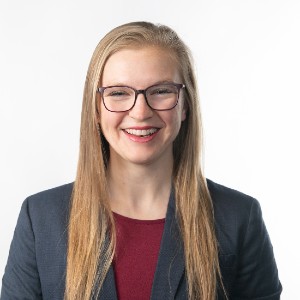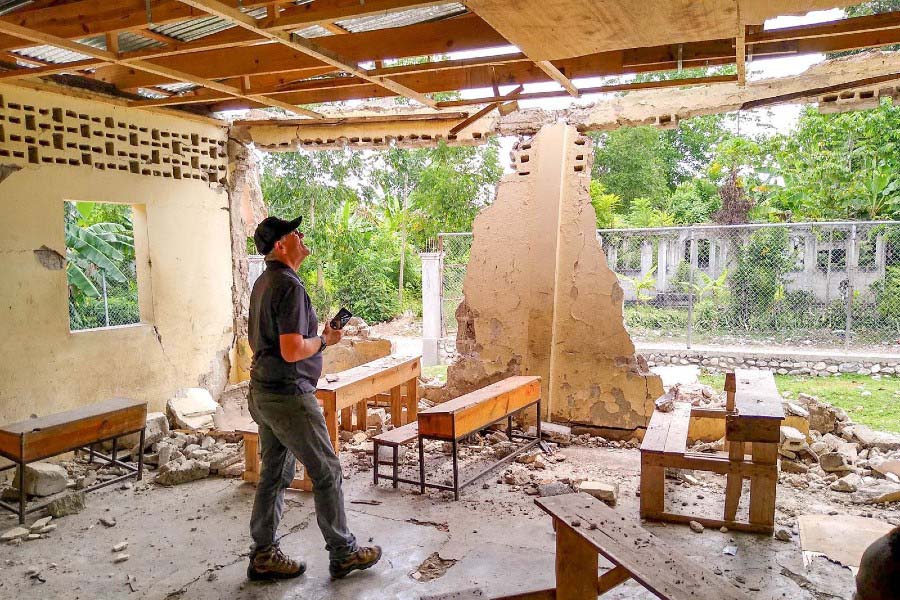Lipscomb hosts annual conference for faith-based Engineering Ministries International
Lipscomb professor gives plenary address on diversity in the field.
Janel Shoun-Smith | 615.966.7078 |

EMI is a Christian nonprofit made up of architects, engineers, surveyors and construction managers devoted to developing people, designing structures and constructing facilities which serve communities and the Church. From EMI website.
In October, Lipscomb’s Raymond B. Jones College of Engineering, a pioneer of higher education engineering missions programs, was selected to host the annual conference for Engineering Ministries International, a global organization that has worked in more than 100 low- and middle-income countries around the world since 1982.
Lipscomb hosted the global conference for the first time in 2009. Since then, Lipscomb has taken an active role in EMI initiatives and Lipscomb Assistant Professor Kirsten Dodson (’12) was invited to be a plenary speaker at the fall conference.
For 16 years, the engineering college has been sending multiple groups of students each semester to countries such as Ghana, Guatemala, Honduras and Malawi to build bridges, water sanitation systems, solar panel arrays, bio-incinerators and even therapeutic playgrounds. Projects are often worked on in student teams for months, if not years, before the final construction.
EMI is a non-profit “designing a world of hope.” Composed of engineers, architects, surveyors and construction managers, EMI is a faith-based network of professionals making a sustainable impact across the globe.
Universities, professional engineering organizations and commercial entities sent attendees to the EMI conference, allowing Lipscomb’s students to connect with individuals with a variety of backgrounds in engineering missions.
Composed of two days full of workshops and plenary sessions, the conference was an opportunity for service-led engineers to come together and plan for a better tomorrow, said College of Engineering Dean David Elrod.
Workshops provided various certifications, including how to assess structures for safety in earthquake and tsunami disaster zones. Engineers trained at the conference were scheduled to work on EMI projects in Haiti.
Additionally, leaders in Lipscomb’s College of Business, Ray Eldridge, dean, and Rob Touchstone, director of the Center for Business as Mission, were involved in a workshop centered on the important role business plays in engineering as mission. Other workshops were focused on solutions to providing clean water and power to underserved communities across the world and the cultural implications of faith-based mission work.

Kirsten Dodson
At her plenary session, Dodson presented her research on the impact of humanitarian engineering projects on diversity and inclusion in the engineering field.
When Dodson began her research, she hypothesized that students with exposure to humanitarian projects are more likely to contribute to and create diverse workplaces. The National Science Foundation awarded her a $200,000 grant to conduct her research.
Because of Lipscomb’s long history in engineering missions and the founding of the Peugeot Center for Engineering Service in Developing Communities in 2014, Dodson had no shortage of relevant available data.
As a Lipscomb student, she herself was part of a team that won a National Council of Examiners for Engineering and Surveying Engineering Education Award for a water treatment system in Ghana. As an alumna and faculty she has worked on-site in Guatemala to install clean water systems and to build a masonry stove and worked with a student team to design a bio-incinerator at a medical center in Honduras.
“At this point (in the research project), we can say that we are seeing that connection between humanitarian missions and diversity, but we haven’t seen it really deeply yet,” said Dodson.
So far, Dodson has more than 80 survey responses from engineering students, professionals and alumni. She continues interviewing more and more people to strengthen the results.

EMI has 107 projects going in 28 nations. This is a photo from a project in Haiti. Photo from EMI.
Not only has Dodson drawn from her own experience as a student on Lipscomb engineering mission projects, but she also has first-hand experience with being a minority in a male-dominated engineering program. “At the conference I spoke about how I was impacted when someone reached out to me when I was the ‘different’ person. I was the only female in my class. I explained what it was like to have the guys in my class care for me and support me during college,” she said.
The engineering field has come to realize it is not good enough for new engineers to be good at math and science, she said. They must also be a good team member, think about the public welfare and be a well-rounded person, she said.
When Lipscomb began hosting engineering mission trips, the humanitarian concept was new and rare among universities, Dodson said. “Around that time, we were one of the only programs that had a humanitarian or service engineering program,” she said. “Now, as the engineering field has grown and evolved over the past 17 years, there are a lot more programs like ours.”
“It is a great way to promote real-world problems and have engineers try to solve them,” said Dodson.
Elrod was grateful for the opportunity to host the conference, seeing the endeavor as an impactful success.
“The conference is a reflection of strong partnerships and common objectives with EMI. Based in Colorado Springs, EMI works globally to provide engineering design solutions to communities of faith all over the world,” he said. “Lipscomb and EMI recognize that God has made each of us individually with talents and abilities. Those with talent in engineering as mission were offered opportunities to enhance them here.”